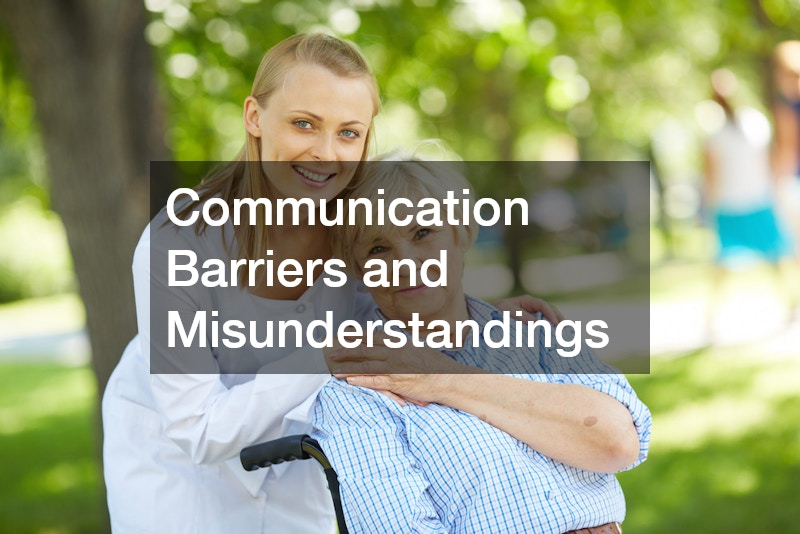The introduction of a caregiver into a family can have profound effects on the dynamics of that family unit. It involves reshaping roles, re-allocating responsibilities, and adjusting communication channels. This article delves into the multifaceted repercussions of caregiving, providing a comprehensive analysis of its impact on family dynamics.
How Does a Caregiver Affect Family Roles and Responsibilities?
Redefining Roles within the Family
The introduction of a caregiver necessitates a reevaluation of existing family roles. Family members often find themselves adopting new responsibilities, whether it’s overseeing medical needs or managing day-to-day tasks. This transition can lead to both growth and friction as individuals navigate their evolving roles.
With the presence of a caregiver, established family hierarchies can shift, leading to new power dynamics. These changes can require family members to adopt roles they might not have anticipated, such as becoming a mediator or coordinator. Adaptability becomes key, as flexibility in roles allows the family to function cohesively.
The redistribution of responsibilities might also affect the emotional bonds within a family. While some members might thrive in nurturing roles, others might struggle with the added pressure. It’s important for families to communicate openly to ensure that each member feels valued and supported in their new role.
Challenges in Shared Responsibilities
Sharing caregiving duties can lead to conflicts when expectations are not clearly delineated. Misunderstandings about who is responsible for specific tasks can create tensions and weaken familial relationships. Clear communication and defined roles are critical to balancing the shared responsibility of caregiving.
Without establishing boundaries, family members might inadvertently overstep, leading to feelings of resentment. It’s not uncommon for conflicts to arise when individuals feel their contributions are undervalued. The emotional and physical strain can take a toll, making it essential for families to discuss and delegate duties collaboratively.
One strategy for mitigating conflict is holding regular family meetings to discuss responsibilities and address concerns. These meetings provide a platform for each member to express their needs and limitations. By fostering an environment of openness, families can navigate the challenges of shared responsibilities more effectively.
Navigating Role Overload
Family members often find themselves juggling personal responsibilities alongside caregiving tasks, leading to role overload. The stress of balancing caregiving with other commitments can result in burnout if not managed carefully. It is crucial to recognize the signs of stress early and develop coping strategies to prevent overwhelm.
Delegating tasks and seeking external support can alleviate some of the burdens from family members. Relying on external services or community resources allows family members to focus on their well-being. Prioritizing self-care is essential to maintaining emotional and physical health while caregiving.
It’s also important to recognize the value of respite care in providing temporary relief from caregiving duties. Taking breaks not only helps recharge the caregiver’s energy but also rejuvenates their emotional strength. By focusing on their well-being, caregivers can provide better support to their loved ones.
What Emotional Impact Does Caregiving Have on Families?
Stress and Burnout Among Family Members
The emotional toll of caregiving can manifest as stress and burnout among family members. Constant caregiving demands can exhaust emotional reserves, leading to feelings of frustration and helplessness. Acknowledging these emotions is a crucial step in addressing the mental health challenges faced by caregivers.
Over time, unaddressed stress can evolve into long-term burnout, characterized by physical and emotional exhaustion. This state can be detrimental not only to the caregiver but also to the overall family dynamic. Recognizing the signs of burnout early allows for timely intervention and ensures the well-being of all family members.
Positive Emotional Outcomes of Caregiving
Despite the challenges, caregiving can lead to positive emotional outcomes, enhancing familial bonds. Many families find that caregiving brings them closer, fostering a sense of unity and collective purpose. These profound connections often arise from the shared experience of nurturing a loved one.
Caregiving can also provide family members with a renewed sense of purpose and fulfillment. Watching their loved one’s progress, even in small measures, generates satisfaction and pride. These positive emotions can counterbalance the stressors, offering a sense of accomplishment and meaning in their roles.
How Does Having a Caregiver Impact Communication within the Family?
Improved Communication through Clear Expectations
When a caregiver enters the family dynamic, establishing clear expectations is vital for improving communication. Spell out responsibilities and roles, which reduces confusion and prevents potential conflicts within the family. Transparency in discussions ensures that all members are aligned and aware of their contributions.
Openly addressing each person’s capacity and availability can foster a more understanding environment. By creating an atmosphere of trust and respect, families can enhance communication channels. These discussions alleviate misunderstandings and pave the way for constructive dialogues.
Promoting regular check-ins and updates allows families to adapt to changing circumstances effectively. With evolving caregiving needs, maintaining flexibility becomes essential. Continuous communication ensures that everyone is on the same page, enhancing collaboration and solidarity within the family.
Communication Barriers and Misunderstandings
Despite the best intentions, communication barriers can arise when a caregiver is involved. Quiet assumptions or unspoken expectations may lead to misunderstandings among family members. These challenges can result in conflicts, underscoring the need to address communication gaps proactively.
Misinterpretations can stem from a lack of clarity about roles and responsibilities. It is vital to articulate expectations explicitly to avoid ambiguity. Clear communication channels minimize assumptions, reducing the risk of misinterpretations and fostering better understanding.
The impact of a caregiver on family dynamics is multifaceted, influencing roles, responsibilities, emotions, and communication. By recognizing and addressing these changes proactively, families can cultivate harmonious environments and foster positive outcomes. Understanding the complexities of caregiving enables families to navigate challenges with resilience and empathy, enhancing their connections and the overall caregiving experience.
.






